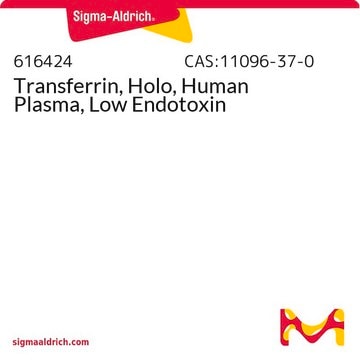A4919
Bovine Serum Albumin
heat shock fraction, protease free, low endotoxin, suitable for cell culture, pH 7, ≥98%
Synonym(s):
Albumin bovine serum, BSA, Bovine albumin
About This Item
Recommended Products
biological source
bovine
Quality Level
product line
BioReagent
Assay
≥98%
form
lyophilized powder
mol wt
~66 kDa
purified by
heat shock fractionation
packaging
poly bottle of
origin
USA origin
technique(s)
cell culture | mammalian: suitable
impurities
protease, none detected
≤1.0 EU/mg endotoxin
loss
≤5%
pH
7
solubility
water: soluble (40 mg/ml)
UniProt accession no.
foreign activity
BT virus, none detected
Protease by FITC, none detected
VSV virus, none detected
storage temp.
2-8°C
Gene Information
bovine ... ALB(280717)
Looking for similar products? Visit Product Comparison Guide
General description
Application
- as a component of cell culture media in cochlear explant culture
- organotypic cultures and embryo culture
- as a component of phosphate-buffered saline (PBS) in immunostaining of human induced pluripotent stem cell (hiPSC)
Biochem/physiol Actions
Features and Benefits
- Tested for use in cell culture
- Protease-free
- Low endotoxin
Preparation Note
Storage Class Code
11 - Combustible Solids
WGK
WGK 3
Flash Point(F)
Not applicable
Flash Point(C)
Not applicable
Personal Protective Equipment
Certificates of Analysis (COA)
Search for Certificates of Analysis (COA) by entering the products Lot/Batch Number. Lot and Batch Numbers can be found on a product’s label following the words ‘Lot’ or ‘Batch’.
Already Own This Product?
Find documentation for the products that you have recently purchased in the Document Library.
Customers Also Viewed
Our team of scientists has experience in all areas of research including Life Science, Material Science, Chemical Synthesis, Chromatography, Analytical and many others.
Contact Technical Service

